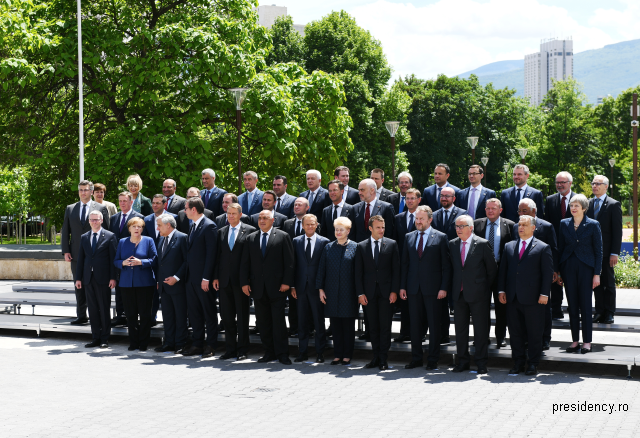The Western Balkans – on the European agenda
The European Union has confirmed the European prospects of the Western Balkans, but has requested reforms. This is the conclusion of the EU-Western Balkans summit held in Sofia

Corina Cristea, 18.05.2018, 13:36
This week’s summit in Sofia has confirmed the European prospects of
the Western Balkans region and has established a series of clear actions to
consolidate cooperation in the field of connectivity, security and the rule of
law.
The summit was the first in this format in the last 15 years and
brought together EU heads of state and government and their counterparts from
Albania, Bosnia Hertegovina, Serbia, Montenegro, Macedonia and Kosovo.
The summit may be a symbolic act, but it can again trigger a
little more dynamism, said the Austrian chancellor Sebastian Kurz, whose
country will take over the rotating EU presidency from Bulgaria in July. If there is no European perspective in the Balkans,
then the Turkish influence and other influence becomes stronger and
stronger, Kurz also said.
I am in favour of anchoring the Balkans in Europe and
moving toward Europe. But I think we need to look at any new enlargement with a
lot of prudence and rigor, said the French president
Emmanuel Macron, one of the European leaders whose statements have poured cold
water on the hopes of the Balkan countries about a possible fast entry into the
European Union.
We must help the countries that
are reforming and moving towards Europe, Macron also said, adding that before
considering any possible enlargement, the European Union must first achieve
real reform itself allowing for deeper integration and better functioning of
the 27 member states after Britain’s exit in 2019.
So far, accession talks have begun with Montenegro, in 2012,
and with Serbia, in 2014. Before moving forward, the Balkan countries must make
sure there is greater stability among them – was another message that came from
Sofia. Brussels’ worries are linked, among others, to the tensions between
Serbia and its former province Kosovo, whose unilateral declaration of
independence a decade ago is yet to be recognised by five member states,
including Romania.
This is but one example of the tensions existing in a region
that has not fully stabilised two decades after the dismantling of the former
Yugoslavia. President Klaus Iohannis, Romania’s representative at the summit in
Sofia said the final declaration reflected the Union’s commitment to the
Western Balkans and its adherence to the own merits principle, in the sense
that each partner is assessed individually depending on its own results.






























